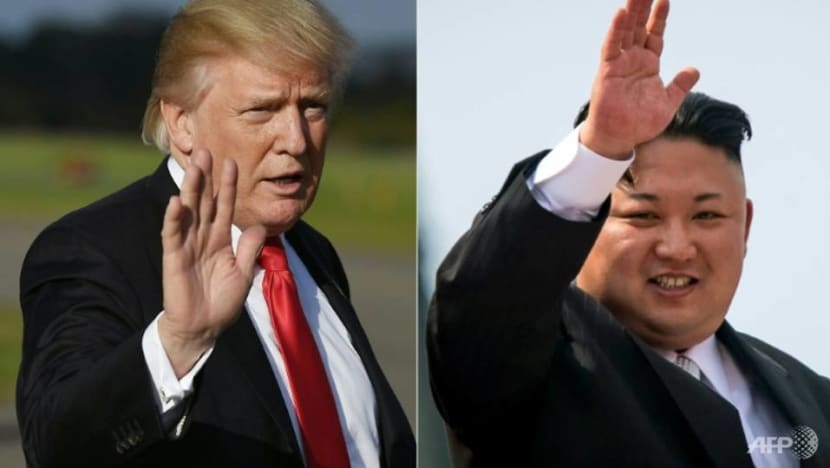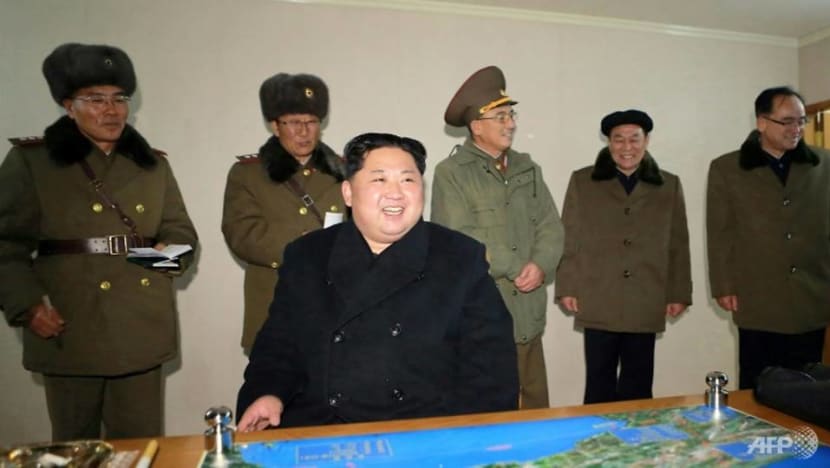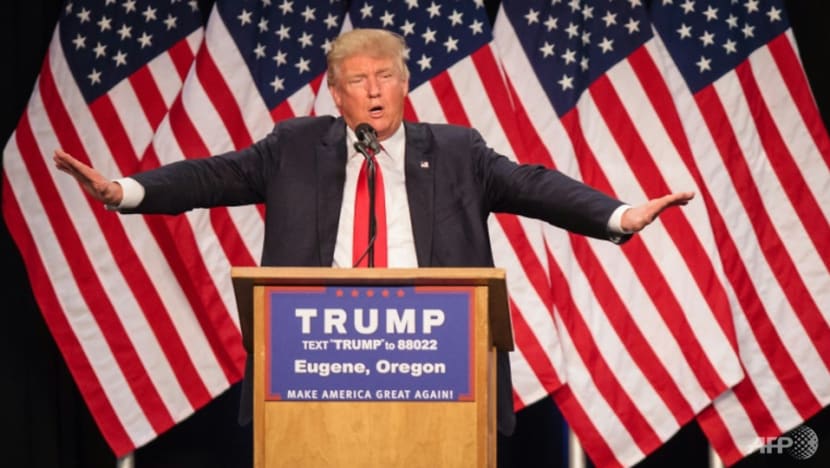commentary Commentary
Commentary: Another North Korean missile test? A stern US response? I've heard all this before

Why should anyone care about the cycle of North Korean missile tests and threats, and the US shows of military power? (Photo: AFP/Mandel Ngan, Ed Jones)
SEOUL: If you follow news on the Korean Peninsula with even occasional interest, you will notice that events can have a cyclical character.
North Korea tests a missile or nuclear weapon. South Korea and the US condemn the North’s act and respond with some show of their own military power.
Media outlets report “rising tensions” and talking heads appear in near constant rotation on television news programmes parsing the possibility of war. Fortunately, these cycles tend to come and go with a lot of talk from both Koreas but no actual fighting.
On the ground, South Korea tends to stay quiet amid the near constant chatter about the possibility of a conflict, and this appearance of calm has spawned a subgenre of news articles where journalists report with surprise that people in South Korean cities are going about their regular lives with no apparent fear of war.
Such a sequence of events has played out in recent weeks, with North Korea launching what appears to be its most advanced long-range intercontinental ballistic missile (ICBM) yet, followed by the US and South Korea kicking off large-scale military exercises.
Those exercises, called Vigilant Ace, involve more than 230 aircraft, including F-35 fighter jets. South Korea says the drills are intended to increase preparedness for a possible conflict. (The exercises are held every year, and aren’t merely a response to North Korea’s latest launch.)
As they always do, North Korea condemned the drills, calling them a provocation and a rehearsal for an invasion of North Korean territory. But Pyongyang hasn’t retaliated beyond words, the peninsula is calm and life is going on.
CAUSE FOR CONCERN?
So why should anyone care about this cycle of tests, threats and military shows of power? Despite the heated rhetoric, the cycles seem to run their course with no major incident.
The reality is that the major players do take steps to maintain order, as none of them stand to benefit from a war in which untold numbers of people would perish.
But there is reason for concern: A closer look at the events of recent months show signs that it is not merely business as usual, as North Korea is moving closer to attaining a significant long-term goal – that of developing an ICBM that can carry a nuclear warhead and hit any point within the United States.
The Pyongyang regime believes that having this capability will force the US and the international community to formally recognise the North as a nuclear power, while also serving as a reliable deterrent against the kind of forced regime change that took place in Libya after that government chose to give up its nukes.
As North Korea gets closer to this objective, the Trump administration in the US has called the North “the greatest immediate threat to the US”.

While North Korea undoubtedly presents a risk, Pyongyang is unlikely to launch a pre-emptive attack on South Korea or the US for the simple fact that it knows it cannot win a conventional war against the much larger and more sophisticated US and South Korean forces. Such aggression would also lead to the end of the Pyongyang leadership’s control of the country.
The most dangerous possibility at the moment is therefore hardline US officials authorising some kind of pre-emptive strike to prevent North Korea from completing work on its nuclear-armed ICBM.
SPACE FOR DIALOGUE
Before he was elected, Trump said he would be willing to sit down with North Korean leader Kim Jong Un, not for an official state visit, but “for a burger”. Trump implied that his experience as a businessman and dealmaker gave him the right kind of character to stand up to a bullying adversary and solve the heretofore intractable North Korea problem.
In short, Trump alluded to doing what his predecessors as US president – both Democrat and Republican – refused to do. That is, to agree to have a dialogue with North Korea without the condition that before any official meeting Pyongyang must take verifiable steps toward dismantling its nuclear programme.

Progress on the issue has been hampered by this impasse: One side insisting on something that the other side flatly refuses. Looking at this situation, a negotiation theorist would say that there is no “zone of possible agreement”, a space where the two sides can find some kind of common ground.
Trump’s burger comment hinted at the possibility of finding a space where the two sides could talk. But since taking office, Trump has taken a hardline approach to North Korea.
In November, while on his first official trip to Asia, Trump was quoted directing the following message to North Korea: “Do not underestimate us. And do not try us.” Along with stern language, Trump has relied almost exclusively on sanctions as a tool to address North Korea. While sanctions are a useful tool in punishing states that flout international norms of security and human rights, they alone will not lead to a breakthrough.
Throughout its history North Korea has proven that it is willing to endure economic hardship as a means of holding on to its autonomy. Also, without China’s wholehearted cooperation, there is a limit to how much sanctions can do to cut off North Korea’s sources of income.
It is therefore time to try something else. Before North Korea reaches that goal of being able to strike any US city with a nuclear bomb – which is coming soon – Trump would be prudent to do what he said he would do and initiate some kind of contact with North Korea.
Invite Kim Jong Un or another senior North Korean official to a neutral city for a meeting, formal or informal. In short, have that burger, and in so doing, just maybe, break the cycle.
Steven Borowiec is the politics editor of Korea Exposé.














